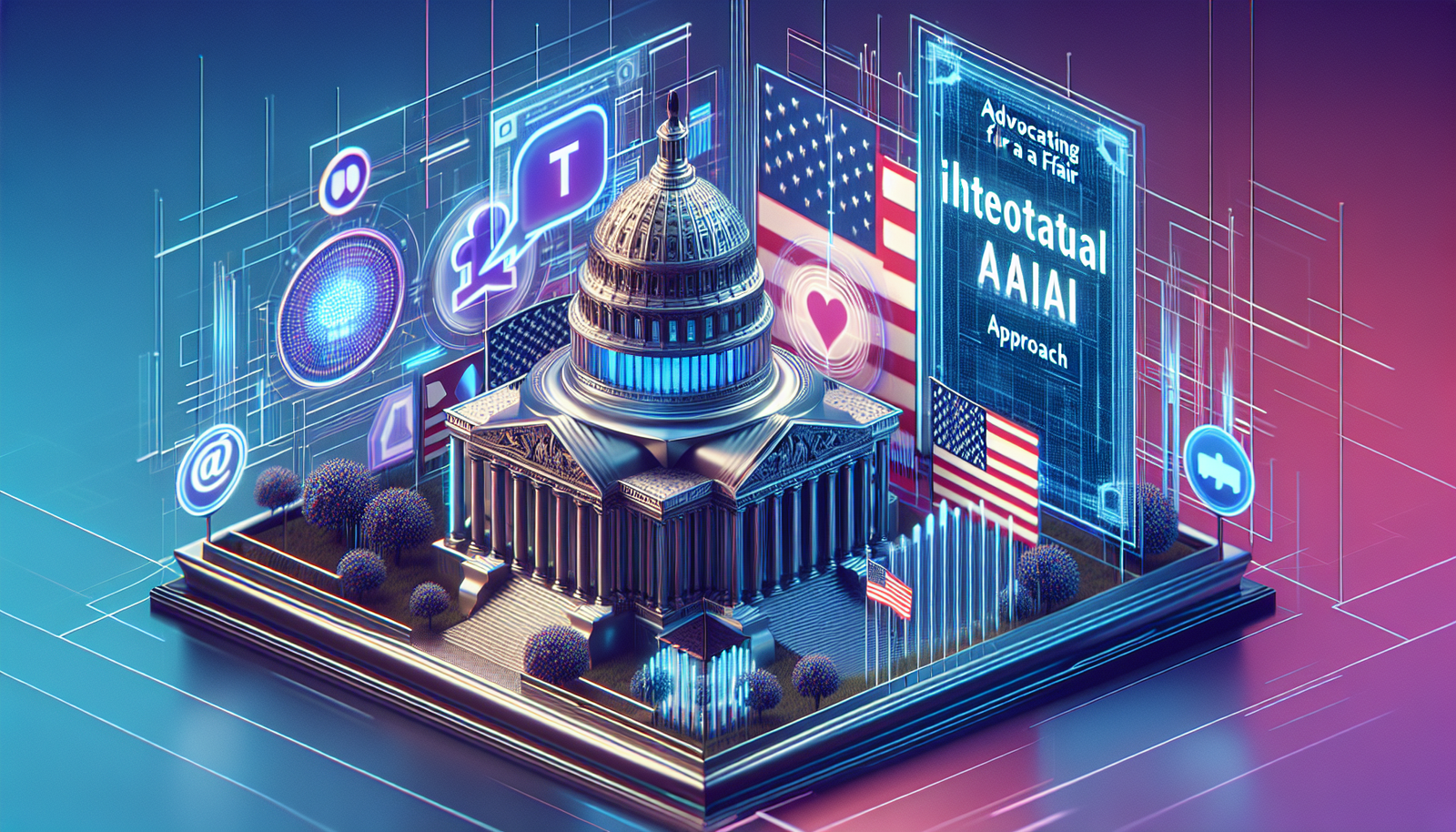Copyright and artificial intelligence are clashing in a battle with significant implications. Google and OpenAI are advocating for a fair approach aimed at redefining creation standards. The stakes of intellectual property are becoming vital for technological innovation. The regulation of AI calls for a profound reassessment of traditional copyright concepts. The tension between the protection of works and technological advancement is intensifying, highlighting the need for an appropriate framework. Influential players in this field argue for a strategy that preserves creativity while promoting innovation.
Copyright: A New Era of Regulation
The tension between technological innovation and copyright protection is intensifying. Google and OpenAI are campaigning for a fair copyright approach in the context of developments in artificial intelligence. They advocate for a legal framework that regulates the use of protected content in the development of their technologies.
An Overview of Current Issues
With the exponential rise of AI systems, a question arises: how far can companies go in exploiting authorized works? Tech giants express their desire to see regulations evolve. The goal would be to prevent human creativity from being stifled by outdated regulations.
Initiatives by Google and OpenAI
Google and OpenAI have recently advocated for a new copyright framework that promotes what they call “fair use”. This widely adopted concept would allow companies to draw inspiration from protected works without fear of legal action. They believe that this strategy would spur innovation and enhance the competitiveness of the United States in the technology sector.
Reactions from Creators and Stakeholders
Reactions to these proposals are mixed. Many artists and creators are concerned about the potential abuses that such a legislative evolution could bring. A group of authors has expressed their fears regarding the non-consensual use of their works. Their viewpoint is that this could lead to a devaluation of artistic creation.
Towards Adapted Legislation
The necessity for an adapted regulation is becoming undeniable. The European AI Act is looking into these issues, but the American model lags behind. Recent court decisions, such as those made by the California court, demonstrate that the legal framework faces significant challenges in light of generative AI capabilities.
The Ongoing Public Debate
Within the public debate, voices are rising to demand enhanced protection for works. Governments, both in Europe and the United States, are being called upon to frame this dynamic. The concerns raised by artists highlight the importance of finding a balance between legal protection and technological innovation.
Conclusion in Progress
As this copyright issue emerges as a key topic, alliances are forming. Tech companies, artists, and lawmakers must unite to design a framework that respects everyone’s rights while encouraging the spirit of innovation. Discussions will continue in the coming months, with a close eye on the evolution of regulations in the United States.
Frequently Asked Questions About Copyright and Artificial Intelligence
What is copyright and how does it apply to artificial intelligence?
Copyright protects original works, such as books, music, and videos. In the context of artificial intelligence, it raises questions about the use of protected works to train AI models without the creators’ permission.
Why are Google and OpenAI advocating for a fair copyright approach?
Google and OpenAI support a fair approach to ensure a balance between technological innovation and the protection of creators’ rights. They aim to encourage creativity while maintaining legal flexibility for AI development.
What are the main concerns of creators regarding the practices of OpenAI and Google?
Creators are worried about the use of their works to train AI models without consent, which could diminish the value of their work and hinder their ability to receive fair compensation for their creativity.
What impact could the European AI Act have on companies like Google and OpenAI?
The AI Act aims to establish a strict legal framework for artificial intelligence technologies. If adopted, it would require companies to adhere to high standards for the use of protected data, thereby influencing their business practices in the United States and elsewhere.
How does copyright regulation impact the development of AI tools like ChatGPT?
Copyright regulation imposes restrictions on the use of protected content to train AI models. This can slow down the development of new AI tools, as companies must ensure they respect creators’ rights while innovating.
What does the concept of “fair use” entail, and how is it defended by Google and OpenAI?
The concept of “fair use” allows for limited use of protected works without permission, such as for criticism, commentary, or education. Google and OpenAI advocate for an expanded interpretation of “fair use” to facilitate innovation while protecting copyright.
What solutions are proposed to balance copyright and technological innovation?
Proposed solutions include establishing clear licenses for the use of protected works, developing support funds for artists, and fostering ongoing dialogue between creators and tech companies to find common ground.
How can the creative community protect itself from unauthorized use of its works by AI?
The creative community is encouraged to unite to advocate for its rights, use legal tools to assert its creations, and engage in discussions about regulation to ensure copyright laws are adapted to the digital age.






